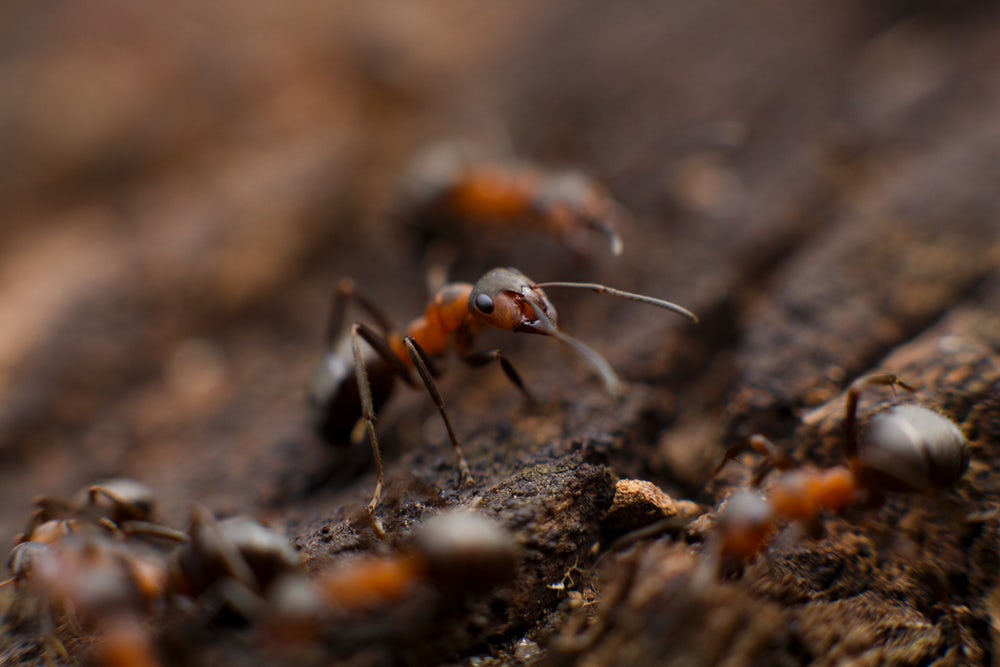One of my last blog posts reviewed some of the things I’ve learned about the interconnectedness of loneliness and social media:
- Loneliness is a growing epidemic, seemingly fueled at least in part by social media use.
- Social media use is rampant and growing, seemingly fueled at least in part by users’ loneliness and search for connections.
According to research, here’s how the self-reinforcing cycle often goes: I feel lonely, so I seek easy online connections. But when I observe other people’s ‘happy’ lives displayed all over social media, I’m likely to conclude that everyone else’s life is so much better than my own, and it fuels further loneliness.
So why make such a big deal about loneliness?
It kills.
Take the case of ants as an example. Research has shown that socially isolated carpenter ants have a greatly reduced life span compared with ants that are in groups of ten or more.
Nobody really knows why lonely ants die young. It seems they simply don’t know how to behave when they’re alone. They scurry around as though addicted, without any rest, depleting their energy.
I imagine us like lonely ants, scurrying around the Internet, looking for connections, finding very little to sustain us, and feeling ever more lonely and depleted.
But we’re not ants, you say.
We’re more similar to ants than you might think. A recent meta-analysis of 70 studies covering over three million people found that loneliness is a major public health issue, representing a greater health risk than obesity or smoking 15 cigarettes a day.
I find it fascinating that the negative effects of loneliness hold regardless of whether or not people live alone or are part of large groups. So again, it seems that we cannot cure loneliness simply by surrounding ourselves with others, whether face-to-face or online.
In fact, chasing more and more connections online may only make things worse. Victoria Halina Poon wrote this in a recent Medium post:
“Sourcing our self-esteem and self-worth from social media is far from sustainable… it can cause psychological addiction, which can go as far as degrading the white matter found in our brains, and works in the same way as drug addiction at its very worst.”
In short, we become like addicted ants, scurrying around depleting ourselves.
In the next series of blog posts, I explore ways that we might use social media to expand rather than deplete our well-being. How can we together develop a meaningful online community that truly connects us. One that, instead of fueling the loneliness epidemic, might actually ward off feelings of isolation by fostering deeper knowing of one another?
And thereby extend our lives.


To me, fostering deeper knowing of one another sounds like a great idea. However, whether online or in person being sufficiently vulnerable to know oneself and/or others more fully often feels a bit risky. What if I really share myself with others and I’m rejected? And if it’s online, there’s no way I can take it back or try to spin it a bit as I might in a live conversation.
It seems to me that different people are at different stages of comfort with knowing themselves and being vulnerable with others. Some don’t want to go near it while others can go on and on sharing about their feelings when everyone around them has long since lost interest.
Finding a way to develop a meaningful online community may necessitate either 1) clear guidelines about the type of sharing that is being encouraged/ discouraged or 2) a range of communities where different levels of vulnerability are encouraged.
Excellent thoughts.
I believe we currently do have a range of communities where different levels of vulnerability are encouraged, and people probably self-select into them (or out of them), depending on their level of comfort with open authenticity.
Your first point, though, about the need for clear guidelines as to what type of sharing is being encouraged, invites further thought and discussion! I recently joined a closed online community of people dealing with post-divorce trauma (no, Ed and I are not divorcing — I am simply doing research on how such communities might function). Yes, many of the posts were raw and pain-filled, as you can imagine. But they were overwhelmingly mad rants about ex-spouses.
If the purpose of such a community is to vent, OK. But if the purpose is to be known and to heal the wounds each of us carries inside, I firmly believe that we can only do this by openly and vulnerably sharing our own weaknesses and warts, not those of others.
I’d love to see what others think about this!